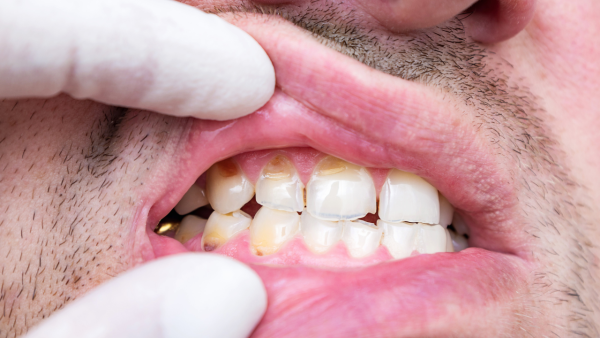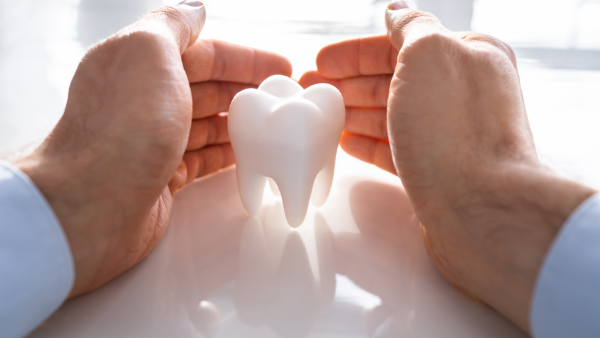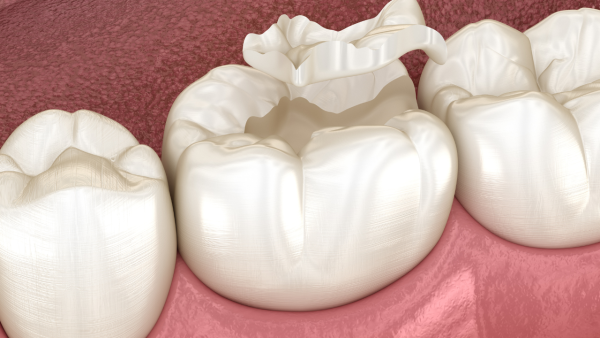
Imagine this: You’re at your dresser, recording a reel. While you’re rehearsing, you notice something unsettling. Your teeth look dull, almost yellow, as compared to your last reel appearance. What you are seeing could be a sign of enamel wear. Enamel, the invisible shield that protects our teeth, is naturally white. However, as it thins due to habits such as hard brushing, acidic foods, or neglect, the underlying dentin (which is more yellow in colour) starts to show through. Unlike a coffee stain or a mark from curry, this isn’t something a quick whitening fix can solve. It’s a structural issue; once enamel erodes, it cannot regenerate. Therefore, one needs to pay close attention to enamel for better oral health .
What is enamel

Tooth enamel is defined as a structure composed of parallel microscale and nanoscale ceramic columns or prisms filled with a soft protein matrix, exhibiting a consistent architectural motif across species and geological times, which suggests a functional basis. In simple terms, enamel is the hard, glossy outer layer of your teeth, made up of about 95 percent minerals, primarily hydroxyapatite, making it the hardest substance in the human body. Unlike bone, enamel has no living cells, which means that once it is lost, the body cannot regenerate or repair it. That’s what makes enamel care so important: it is your teeth’s one and only shield against cavities, sensitivity, and decay.
Why do Indians tend to ignore enamel care

Despite how important enamel is, awareness about its care is surprisingly low. According to Haleon, studies show that only 8 percent of Indians are aware of enamel wear, despite nearly 95 percent being at risk. Everyday habits, such as overzealous brushing, sipping acidic drinks, or frequent snacking, chip away at enamel without us even realising it. By the time symptoms appear, such as sensitivity or visible yellowing, the damage is usually already advanced. Dentists report that around 27 percent of patients in India already exhibit signs of enamel erosion , a figure that highlights the urgency of the problem.
How enamel gets eroded
Enamel erosion is a silent process. It doesn’t happen overnight but through consistent, often unintentional choices. Some of the biggest culprits include:
Excessive and hard brushing: Many people believe that the harder you brush, the cleaner your teeth will be. However, harsh brushing can damage both enamel and gums.
Acidic foods and drinks: Citrus fruits, sodas, sports drinks, and even tomato-based dishes can weaken enamel by lowering pH levels in the mouth.
Frequent snacking: Constantly eating, especially sugary foods, keeps acids in contact with teeth for longer.
Bruxism (teeth grinding): Grinding teeth at night creates excessive wear on enamel surfaces.
Poor oral hygiene: Neglecting daily care allows plaque to build up, which produces acids that attack the enamel.
The concerning part? Enamel erosion is often painless in its early stages. That’s why awareness and preventive care are the only real solutions.
Why we should start caring for enamel

Ignoring enamel wear can set off a chain reaction. Once enamel thins, the yellow dentin layer beneath becomes visible, making teeth appear discoloured. Sensitivity to hot, cold, or sweet foods soon follows, and in severe cases, cavities and tooth loss become real risks. But the cost isn’t just physical. For many, enamel erosion affects a beautiful smile. A smile that no longer looks bright or pain that ruins a meal can impact everything from social interactions to professional presence. Protecting enamel is not just about oral health; it’s about quality of life.
How to take care of healthy enamel
The good news is that enamel care doesn’t have to be complicated. Small, mindful changes can make a huge difference:
Gentle brushing: Use a soft-bristled toothbrush and avoid scrubbing too hard. Circular, gentle motions clean teeth effectively without damaging enamel.
Smart food choices: Limit highly acidic and sugary foods. If consumed, rinse your mouth with water immediately after.
Timing matters: Don’t brush right after eating acidic foods. Wait 30 minutes to let saliva neutralise acids.
Stay hydrated: Drinking water not only washes away food particles but also boosts saliva production, your body’s natural defence against acids.
Regular check-ups: Routine dental visits help detect early signs of enamel wear before it worsens.
Use special enamel care toothpaste: Ensure protection for your teeth’s natural shield with a toothpaste made for enamel. Gentle yet effective, it helps prevent wear and keeps your smile stronger for longer.
There’s no need to explain how dear our teeth are to us. In a country where awareness is low but risks are high, the message is straightforward: caring for enamel isn’t optional, it’s essential. Enamel is the unsung hero of oral health. It is a silent shield that works tirelessly to keep teeth strong and pain-free. But like any shield, it needs care. The solution begins with awareness and extends into daily action. Brushing gently, eating mindfully, and using the right products are simple steps with long-term benefits. After all, protecting enamel isn’t just about oral health. It’s about safeguarding our smiles, our confidence, and the quality of life that comes with both.
-
Rajkummar Rao Dedicates Filmfare Best Actor Critics Award To Soon-to-Be-Born Baby

-
China calls on Pakistan, Afghanistan to reach lasting truce

-
UP NEET 2025 Round 3: Revised State Merit List Out, 34,511 Students Eligible For Counselling; Choice Filling From October 17

-
Future of Cricket? Test Twenty format backed by de Villiers, Hayden, Harbhajan and Lloyd

-
This actress worked with Salman Khan, Hrithik Roshan, never gave single hit in Bollywood, still became top actress, her name is…
